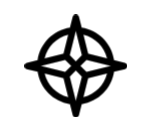
With the proper organization and support, the University of California's extensive talent pool represents one of the most powerful disaster resilience clusters in the world. Our ability to tackle extreme challenges is enhanced through collaboration across academic, NGO, community, and governmental sectors. Only by working together comprehensively will we advance the science of disaster resilience, uniquely addressing the complex, interconnected challenges that threaten communities across California and the globe.
This approach high-octanes our Core Operational Pillars:

At our core, UCDRN is an institute for multidisciplinary collaboration. We bring together experts, practitioners, and thought leaders to foster innovative approaches and synergies that exceed the capabilities of individual efforts.
Facilitate

Leveraging the University of California's unparalleled research capabilities, UCDRN is at the forefront of advancing knowledge on resilience. We focus translating cutting-edge research into practical strategies to enhance societal resilience against escalating disasters.
Investigate
.svg)
UCDRN is committed to training the next generation of leaders who are adept at navigating and mitigating the cascading effects of compounding disasters and poly-crises. Our educational initiatives are designed to equip individuals with the knowledge and skills needed to tackle increasingly complex challenges.
Educate
Coordinated Implementation

Innovating in the very administration of the world's most powerful public research university system


.svg)
Thanks to The Rudi Schulte Family Foundation, Mr. Dick Beahrs, and Mr. Mark Bertlesen, after years of grassroots organizing across and beyond the University of California, UCDRN formally launches in the midst of the Covid 19 Pandemic.
2021
*Organizational structure is consolidated and augmented systemwide, with visionary leadership recruited from all campuses and key external partners.
* Key cross-sectoral partnerships with top NGOs, government, private, and international stakeholders undertaken.
* Wildfire resilience research incubated in collaboration with the UC Natural Reserve System; backed by The Moore Foundation.
* Campus-based Committees (CbC) established at UCSB and UCR; explored at several other campuses.
2022
*Advisory Board (Chair Mark Bertlesen) and Governance Council (Chair LeRoy Westerling, Merced; Co-Chair Sec. Janet Napolitano, Berkeley) established.
* First systemwide disaster resilience course, launched from UC Berkeley with support of UCOnline
* Inaugural "UC Disaster Resilience Day" convened cross-sectoral leadership at UC Center Sacramento.
* Global collaborations with leading public research universities in South American and Western Europe commenced.
2023
2024
* Augmenting teaching, research, and service-based partnerships across all UC campuses.
* Wildfire resilience research advanced regionally with UCNRS, key Santa Barbara community reps, & UCDRN @UCSB & UC Merced.
* Institutionalized programmatic and administrative gains-to-date.
GAINS TO-DATE INCLUDE:
* Education- hybrid Disaster Resilience Studies portfolio expands by 400%; dozens of affiliated courses listed. Exploring comprehensive and strategic systemwide offerings with UCOnline.
* Research - constellation of independent, symbiotic resilience centers (climate policy; seismic; wildfire; cyber; community research, etc.) under consideration across several campuses.
2025-Beyond
- Association of Pacific Rim Universities
- The 2025 EY Open Science AI & Data Challenge
- California Council on Science & Technology
- Microsoft AI for Good
- American Red Cross' Disaster Preparedness Center
* Administration - Chancellor engagement at several campuses as UCDRN leadership close in on potential endowment.
